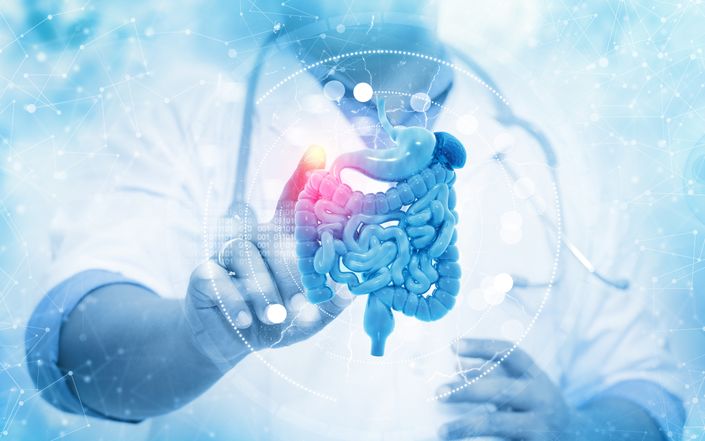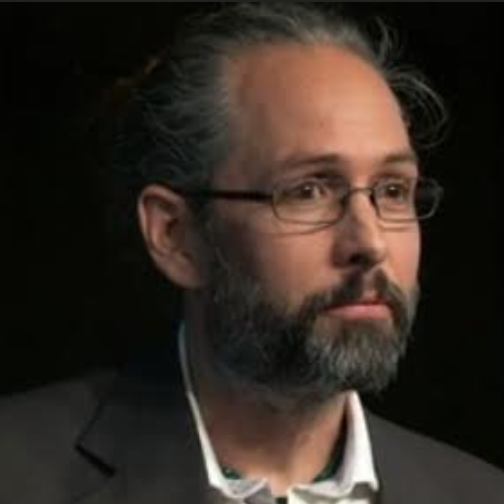
Naturopathic & Functional Medicine Approaches to Gastrointestinal Disorders - 2024 Term
An intensive, comprehensive, detail-rich, 10-week deep-dive into natural and functional medicine approaches to common gut disorders
This
course will give you a comprehensive foundation in the naturopathic
& functional medicine management of gastrointestinal disorders using
Dr Jason Hawrelaks’ evidence-based, and clinically-guided,
microbiome-first, paradigm of
practice.
On completion of this ten-week course, practitioners will become Certified Healthy Gut Practitioners, which will help potential patients identify you as someone who has done extensive post-graduate training in this area and as being fluent in a microbiome-first practice paradigm – where we carefully consider the impact of our prescribing options on the health of the microbiome when making a choice as to what intervention to use for our patients.
Become a Certified Healthy Gut Practitioner
Dr Hawrelak has a unique skill set - being a clinician, research scientist, and educator - who completed his PhD in the area of the gut microbiota and who has been working and practicing in this area for over 20 years. He has been described as an inspiring teacher and mentor with an unrivalled depth of knowledge in the field.
The Naturopathic & Functional Medicine Approaches to Gastrointestinal Disorders course is the most comprehensive course of its kind - taught by a worldwide leader in the field. This course provides you with weekly pre-recorded lecture content (over 35 hours over the term covering 21 different topic areas) that you can watch at your own pace each week, and dedicated weekly live Q and A sessions over Zoom to go deeper into the weekly topics, get your questions answered, and learn from the questions others in the course ask. This is a rare opportunity to learn directly from Dr Hawrelak, who will be leading the weekly live classes.
As clinicians, we know it’s hard to stay up-to-date with the huge amount of research coming out on the best ways of managing GI disorders and new insights into the pathophysiology of GI conditions. That’s one of the reasons Dr Hawrelak set up this course – to kee p you up-to-date. He’s scoured the medical literature, so that you do not have to. He’s treated thousands of patients with gastrointestinal disorders and will share what works, and what doesn’t, from over 20 years of clinical practice. He’s assessed and critiqued commonly used GI functional tests, sorting the wheat from the chaff, so can let you know which ones are worth using and which ones are not.
What You'll Cover in this Course...
Week 1
Module 1 - Probiotics.
Module 2 - Prebiotics, Synbiotics, and Microbiome-Nourishing Foods.
We will delve deep into the specialty GI Tools – Probiotics, Prebiotics, Synbiotics, and Microbiome-Nourishing Foods We will look at optimal dosing strategies, and how to select the most appropriate probiotics and prebiotics for varying clinical presentations. Understand and learn how to debunk the common myths pertaining to probiotics and prebiotics that may impede their use and result in sub-optimal patient outcomes.
Week 2
Module 3 - The Vital Importance of the Gastrointestinal Tract Microbiota.
Module 4 - Dysbiosis - its Causes and Consequences.
We’ll cover the vital functions of the Gastrointestinal (GI) microbiota and learn about the main drivers of dysbiosis in Western nations - including dietary, pharmaceutical, lifestyle and even herbal drivers of bacterial imbalances. The role of dysbiosis as a driver of common chronic diseases including obesity, autism, type two diabetes, and Alzheimer's disease will be covered.
Week 3
Module 5 - Gastrointestinal Microbiota Assessment – An Overview & Critique of the Options
Module 6 – Intestinal Permeability - Testing and Treatment.
Become familiar with the strengths and weaknesses of different microbiota assessment technologies and how to dissect test results, including consideration of microbial diversity, and the presence and absence of keystone and potentially pathogenic organisms. Understand the value of leaky gut testing, including the tests that are worth doing and the ones that are not, and explore key treatments and dietary modifications that speed healing of a leaky gut.
Week 4
Module 7 - Gastroesophageal Reflux Disease (GERD).
Module 8 - Peptic Ulcer Disease (PUD).
Explore the causes and natural treatment options for GERD and PUD. Become familiar with effective treatment approaches to the commonly treatment-resistant Helicobactor pylori, so that you can offer patients an alternative option to antibiotic cocktails, plus learn what can be given alongside antibiotics to improve eradication rates.
Week 5
Module 9 - Gluten-related Disorders.
Module 10 - Lactose intolerance.
Module 11 - Fructose intolerance.
Learn about the nuances, differences, and overlaps with these conditions including how to distinguish between gluten sensitivity from celiac disease. Learn the differences between primary and secondary lactose and fructose intolerance and how this crucial distinction changes how they are managed in the clinic.
Week 6
Module 12 - Small Intestinal Bacterial Overgrowth (SIBO).
We’ll dig into the limitations and strengths of tests commonly used to diagnose SIBO and discuss the pros and cons of different breath test substrates – Lactulose vs Glucose vs Fructose. Learn about different dietary approaches to SIBO management and their pros and cons and discuss whether they are really keystones in SIBO treatment, as well as how to successfully implement the use of probiotics and prebiotics in SIBO treatment and in remission.
Week 7
Module 13 - Using Herbs to Modulate the Microbiota – Treating Bacterial Infections & Imbalances.
Module 14 - Giardia – Natural and Functional Approaches to Treatment.
Module 15 - Blastocystis & Dientamoeba – Clinical Considerations.
Explore the ways we can use herbal medicines to modulate the microbiota. How we can use them to nurture some keystone GI species and how to use them to effectively target bacterial and protozoal pathogens (doses, duration of treatment required, etc). There will be a particular focus on the use of herbal tools that can selectively modulate the ecosystem.
Week 8
Module 16 - Crohn’s Disease.
Module 17 - Viral Gastroenteritis.
We’ll cover the dietary, lifestyle, and dysbiotic factors that contribute to the development of Crohn’s disease and explore the dietary approaches, herbal medicines and supplements that can be used to help manage the condition. We’ll also cover the key clinical considerations and tools to use when helping patients with viral gastroenteritis.
Week 9
Module 18 - Irritable Bowel Syndrome (IBS).
Module 19 - Ulcerative Colitis (UC).
Learn the pros and cons of different dietary approaches to IBS and what tests to do to properly differentiate IBS from other causes of GI symptoms. We’ll delve into herbal treatments for IBS and detail those that produce the best outcomes in the different subtypes of IBS. We’ll cover the dietary, lifestyle, and dysbiotic factors that contribute to the development of UC and detail the different dietary approaches, herbal medicines, and supplements that can be used to help bring UC into remission and keep it there.
Week 10
Module 20 - Diverticular Disease.
Module 21 - Functional Constipation.
This week we’ll cover the far-reaching consequences of constipation, that go way beyond the gut and detail the important home tests you should be getting every patient to do that inform us about their GI health. Learn the best constipation-fighting foods and supplementary fibers to prescribe, and also what to do when these do not work. We’ll also cover nutritional, herbal, and dietary approaches to diverticular disease - which is arguably the most common GI condition seen in Western populations.
Your Instructor

Dr Hawrelak is a microbiota and probiotic researcher, educator, and clinician with over 20 years experience treating mainly gastrointestinal conditions and more than 20 years teaching students and practitioners how to diagnose and treat gastrointestinal conditions, as well as how to promote optimal gut health. Click here for a full bio.
